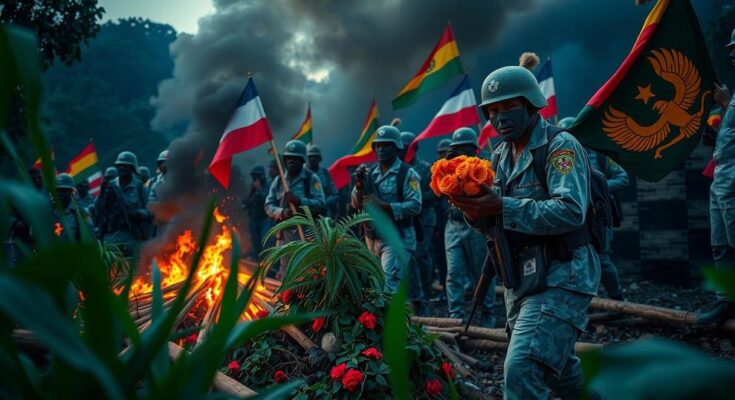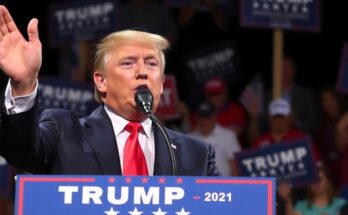The Democratic Republic of Congo faces growing citizen distrust in government as President Tshisekedi focuses on amending the constitution, potentially to alter presidential term limits. This political maneuvering, seen as a distraction from pressing national issues such as poverty and insecurity, raises concerns amongst many Congolese about the implications for democracy and stability in the region, especially as foreign interests continue to exploit the nation’s wealth.
The Democratic Republic of Congo (DRC) continues to face significant setbacks as its president, Felix Tshisekedi, prioritizes constitutional reforms amidst widespread citizen discontent. Despite leading a resource-abundant nation ranked among the poorest worldwide, Tshisekedi’s administration has struggled to address pressing issues like poverty, insecurity, and a growing health crisis. In light of the flawed 2023 elections, the president has announced intentions to establish a commission for constitutional drafting, which many critics view as a tactic aimed at extending his presidential term, reminiscent of his predecessor Joseph Kabila’s attempts to circumvent term limits. This constitutional initiative has been met with skepticism, as it reflects a pattern of self-serving political maneuvers amidst a backdrop of possibility for regional unrest. The DRC’s inspiring history is shadowed by external influences, with foreign powers eager to exploit its mineral wealth while ignoring the mounting socio-political tensions faced by its citizens. Therefore, the political climate remains perilous, with risks of instability heightened not only by internal decisions but also by global interests that may continue to undermine the Congolese populace’s struggle for change.
The Democratic Republic of Congo has long struggled with issues such as extreme poverty, insecurity, and political corruption. Significant portions of the population, particularly in the eastern regions, live in constant fear due to armed group violence, resulting in millions being displaced. Furthermore, the country faces a devastating Mpox outbreak and high levels of food insecurity, with over twenty-three million individuals lacking adequate nourishment. Amidst these severe challenges, President Tshisekedi’s push for constitutional reform raises questions about governance and the potential for detrimental political distractions.
In summary, the proposed constitutional changes in the Democratic Republic of Congo under President Tshisekedi come at a critical juncture. While couched in terms of modernization and progress, these initiatives are perceived by many as attempts to prolong his presidency, thereby exacerbating existing tensions. The convergence of political ambitions and external exploitation of the country’s resources complicates the DRC’s path towards stability, underscoring the urgent need for accountable governance that genuinely addresses the citizens’ needs.
Original Source: www.africa.com



